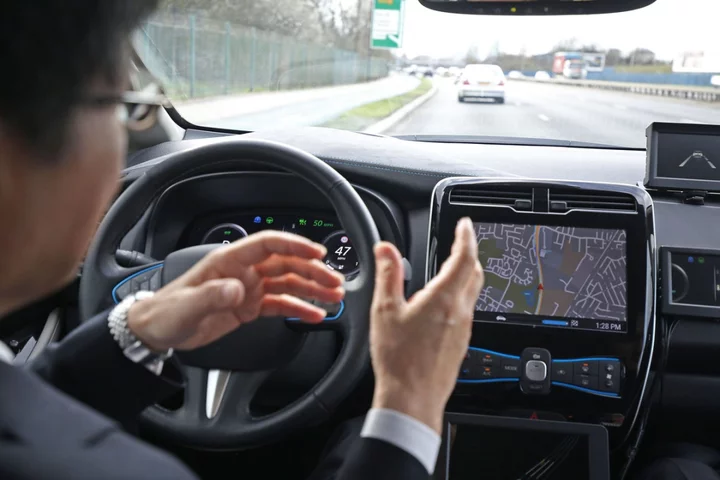A “moral panic” will be caused by the use of self-driving vehicles on public roads, a transport minister has warned.
Jesse Norman told MPs that a “horrendous” part of the development of the technology will be “scare stories, particularly in the early stages”.
Last month the UK became the first European country to allow drivers to take their hands off car steering wheels on public roads, after the Department for Transport gave manufacturer Ford permission to activate its BlueCruise system on motorways.
This controls functions such as steering, acceleration, braking and lane positioning.
It's a really interesting question of consent
Jesse NormanFully self-driving cars remain banned on public roads in the UK apart from during Government-approved trials.
Legislation to approve the technology could be introduced as early as 2025.
Asked about the safety of self-driving vehicles by the Commons’ Transport Select Committee, Mr Norman said: “The horrendous thing about this is that we can be rationally certain there are going to be some scare stories, particularly in the early stages, because of the diversity of human life.
“It’s a really interesting question of consent and democratic engagement as to whether or not we as a policy, as a country, are able to weather that moral panic in the pursuit of a future which might lead to an enormously larger number of people not dying.”
The safety record of self-driving vehicles will be “intensely publicly scrutinised”, the minister predicted.
He added: “As people understand the difference between assisted and self-driving (systems), we ought to be able to create a public environment in which there’s acceptance and understanding of that situation, but we can’t bank on it.”
Committee member and Conservative MP Paul Howell compared the issue to smart motorways, where “public opinion kicked back hard” as people “didn’t perceive (them) as being safe” despite data suggesting otherwise.
The Government announced last month that no new smart motorways would be built, with Transport Secretary Mark Harper citing a “lack of public confidence”.
National Highways figures indicate they are England’s safest roads in terms of serious or fatal casualties.
Meanwhile, Mr Norman earlier told the committee that evidence suggests e-scooters tend to be used to replace journeys that would have been made by walking or cycling, rather than in a car.
Asked about trials of rental e-scooters in England, Mr Norman said: “Early on in the rental market I think there was a great deal of excitement about the potential for e-scooters to take people out of cars and to improve on decarbonisation and on air quality.
“We’ve now looked at a lot of the work that’s been done in the trials … and it does look like the e-scooters cannibalise active travel rather more than they take people out of cars.”
Read MoreCharity boss speaks out over ‘traumatic’ encounter with royal aide
Ukraine war’s heaviest fight rages in east - follow live
Cryptocurrency trading should be regulated as gambling, says treasury committee
WhatsApp offers new password protected feature to hide messages
75% of Irish data watchdog’s GDPR decisions since 2018 overruled – report









